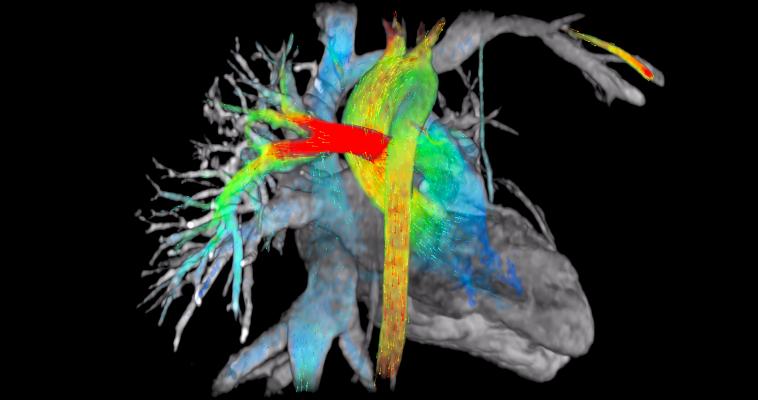
February 10, 2016 — In a finding that could lead to new drugs to treat heart failure, researchers have uncovered the molecular mechanism that regulates how the heart pumps blood.
The key molecular player in this mechanism is a giant protein called titin, according to a study led by senior author Pieter de Tombe, Ph.D., of Loyola University Chicago Stritch School of Medicine. The study was published Feb. 8, 2016, in Proceedings of the National Academy of Sciences.
De Tombe is interim vice dean for research and chair of the Department of Cell and Molecular Physiology at Loyola University Chicago Stritch School of Medicine.
A healthy heart regulates itself so that with each beat, it pumps out as much blood as it receives. When blood enters the heart, it stretches the wall of the pumping chamber, triggering muscle to contract and pump blood out. This regulatory-control mechanism is known as the Frank-Starling law, named after physiologists Otto Frank and Ernest Starling.
In heart failure patients, the Frank-Starling law breaks down. Heart muscle becomes too weak to pump out of the heart the same amount of blood that flows into the heart. To compensate, the heart enlarges, develops more muscle mass and beats faster. But eventually these compensatory measures fall short. The heart cannot pump enough blood to meet the body’s needs for blood and oxygen, leading to shortness of breath, fatigue, weakness, swelling in legs, fluid retention and other symptoms.
The study by de Tombe and colleagues found the titin protein is key to understanding the Frank-Starling mechanism and therefore how much blood the heart is able to pump out with each beat. Titin is an essential component of muscle. It’s the largest protein in the body, weighing about 15 times as much as an average protein. In the heart, it acts like a spring, affecting the heart’s ability to contract and relax. Normally when people age, the titin protein gets shorter. But in heart failure patients, the protein grows longer and becomes less effective.
“Our findings provide insights into the molecular basis of the Frank-Starling regulatory mechanism,” de Tombe said. “This will help clarify the field and could point the way to new medications to more effectively treat heart failure. We were able to eliminate a number of other competing theories, including some of our own.”
About 5.1 million people in the United States have heart failure, and heart failure is listed as a contributing cause in one out of nine deaths, according to the Centers for Disease Control and Prevention. About half of heart failure patients die within five years of diagnosis. Heart failure costs the nation about $32 billion each year, including healthcare costs and missed days of work.
The study is titled “Titin strain contributes to the Frank-Starling law of the heart by structural rearrangements of both thin-and thick-filament proteins.” It was funded in part by grants from the National Institutes of Health.
De Tombe’s co-authors are Younss Ait-Mou, Karen Hsu, Gerrie Farman and Mohit Kumar of Loyola University Chicago Stritch School of Medicine; Thomas Irving of the Illinois Institute of Technology; and Marion Greaser of the University of Wisconsin.
For more information: www.pnas.org


 January 05, 2026
January 05, 2026 









